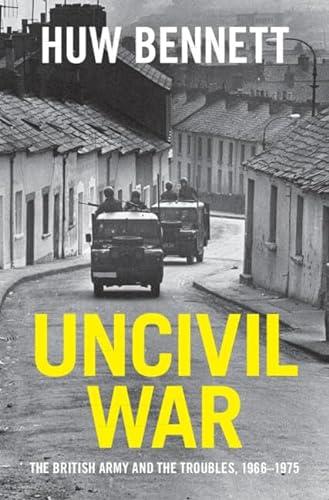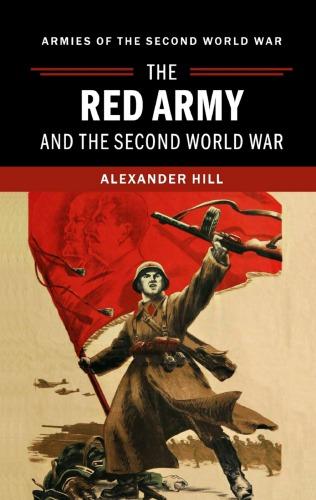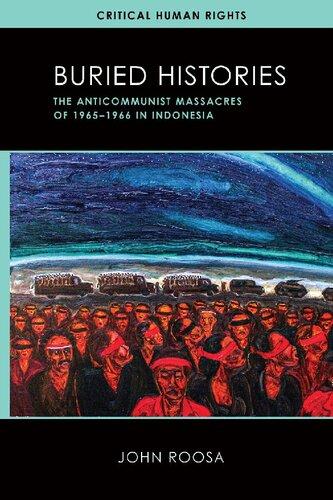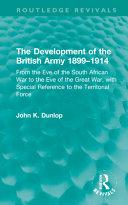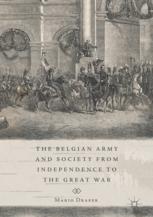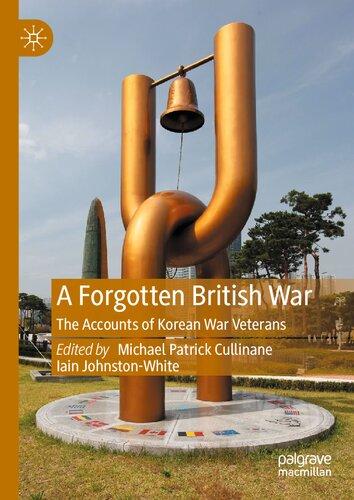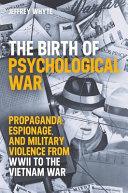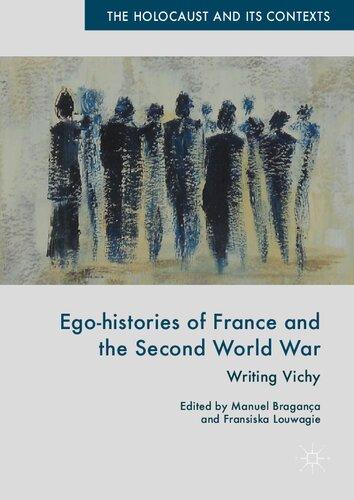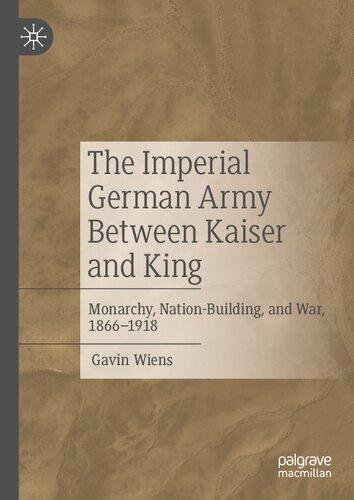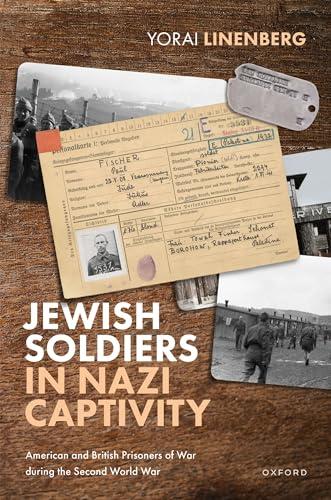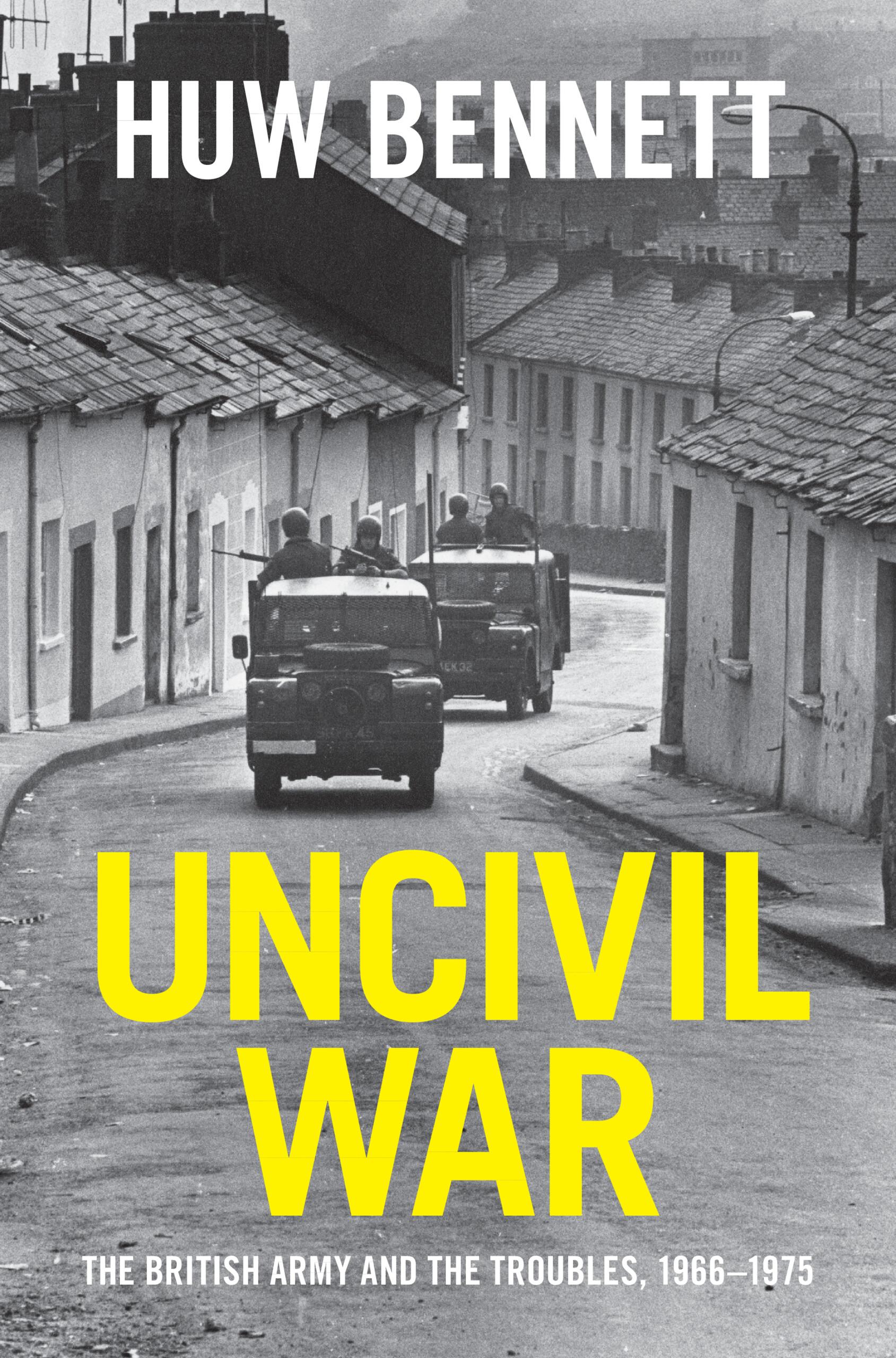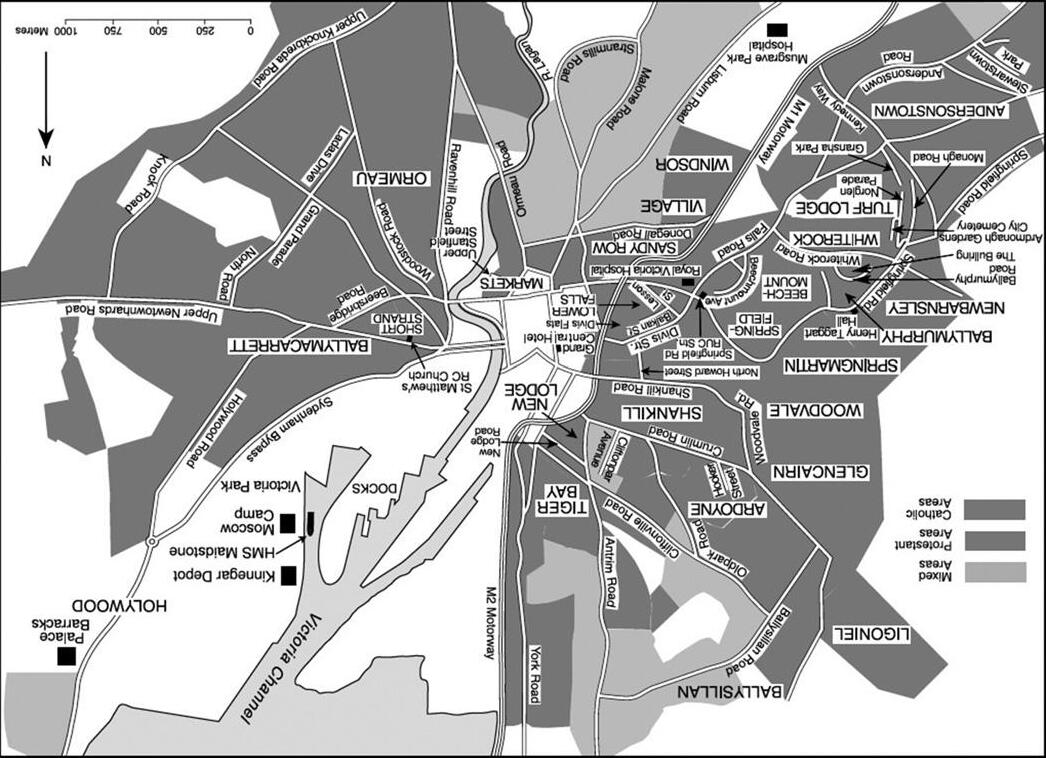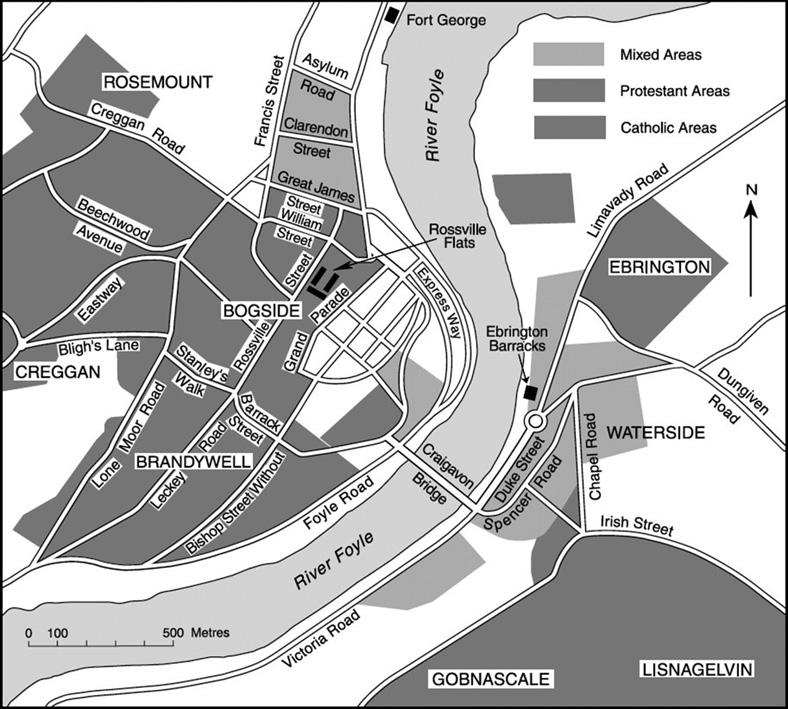ForClaudia,LinaandOrla,withlove
5.1Totalcasualties,November1971–March1972. page 131
5.2Explosionsandbombsdisarmed,November1971–March 1972. 134
5.3AttritionoftheIRA,November1971–March1972. 135
6.1Weeklymilitaryoperations,January–November1972. 170
6.2Totalweeklyshootingincidents,January–November1972. 173
6.3Weeklyshootingincidentsnotinvolvingthesecurityforces, April–November1972. 181
7.1Monthlyborderincidents,September1972–October1975. 215
7.2Monthlyshootingincidents,September1972–October1975. 216
7.3Monthlybombexplosions,January1973–October1975. 217
7.4Monthlyweightofexplosionsanddevicesneutralised, September1972–October1975. 222
7.5Monthlycasualties,September1972–October1975. 245
7.1Prosecution,internmentandreleaseofsuspected IRAmembers. page 233
7.2Housesearchesandweapons finds,1970–5. 241
1.1CaptainTerenceO’NeillandHaroldWilsonat10Downing Street,5November1968. page 23
2.1MembersoftheQueen’sRegimentdisembarkfrom thetroopcarrier SirTristram,28August1969.
2.2Major-GeneralTonyDyballandFatherMurphyinspect abarricadeintheFallsRoadareaofBelfast, 16September1969.
3.1FightingintheFallsRoadareaofBelfast,4July1970.
4.1SoldierspatrolthestreetsofBelfast,10August1971.
4.2RiotinginDerry,14September1971.
5.1EdwardHeathandPeterCarringtonattheConservative PartyannualconferenceinBlackpool,10October1973.
5.2GeneralSirMichaelCarver,ChiefoftheGeneralStaff, 8April1971.
5.3Avictim’sbloodonthepavementnearRossvilleFlats,Derry, 30January1972.
6.1WilliamWhitelawtalkingtoshoppersinDerry,20April1972.
6.2AProvisionalIRApressconferenceinDerry,13June1972.
7.1MembersoftheUlsterDefenceAssociationmarchalong theShankillRoadinBelfast,14October1972.
7.2Theviewfromanarmyobservationpost,overlooking theLenadoonestateinwestBelfast,12April1972.
7.3SoldiersmakeanarrestintheBogside,Derry,4September 1971.
8.1TheSunningdaleAgreementissigned,9December1973.
Abbreviations
ACCAssistantChiefConstable
ACDS(Ops)AssistantChiefoftheDefenceStaff(Operations)
AGAdjutantGeneral
APSAssistantPrivateSecretary
AUS(GS)AssistantUnder-Secretary(GeneralStaff)
BAORBritishArmyoftheRhine
BBCBritishBroadcastingCorporation
BGS(Int)BrigadierGeneralStaff(Intelligence)
C2(AD)CentralDepartment2(ArmyDepartment)
CCDCCentralCitizens’ DefenceCommittee
CDCCitizens’ DefenceCommittee
CDSChiefoftheDefenceStaff
CGSChiefoftheGeneralStaff
CLFCommanderLandForces
ColGSColonel,GeneralStaff
COSChiefofStaff/ChiefsofStaff
CPRChiefofPublicRelations
CSAChiefScientificAdviser
CSgas2-chlorobenzalmalononitrilegas(teargas)
DASDDirectorofArmyStaffDuties
DCDADerryCitizens’ DefenceAssociation
DCDS(I)DeputyChiefoftheDefenceStaff(Intelligence)
DCS(A)DeputyChiefScientist(Army)
DGIDirector-GeneralofIntelligence
DMODirectorofMilitaryOperations
DofDOPDirectorofDefenceOperationalPlans
DOpsINTCOMDirectorofOperationsIntelligenceCommittee NorthernIreland
DPPDirectorofPublicProsecutions
DPR(A)DirectorofPublicRelations(Army)
DSDirectingStaff
DS6DefenceSecretariat6
DS10DefenceSecretariat10
DUPDemocraticUnionistParty
DUS(Army)DeputyUnder-Secretary(Army)
DYHDerryYoungHooligans
EECEuropeanEconomicCommunity
EODExplosiveOrdnanceDisposal
EOKAEthnikiOrganosisKyprionAgoniston(National OrganisationofCypriotFighters)
FCOForeignandCommonwealthOffice
FOIFreedomofInformation
GOCGeneralOfficerCommanding
GSO1GeneralStaffOfficer,Grade1
GSO2GeneralStaffOfficer,Grade2
HMGHerMajesty’sGovernment
HQNIHeadquartersNorthernIreland
INLAIrishNationalLiberationArmy
INTSUMIntelligenceSummary
IRAIrishRepublicanArmy
ISInternalSecurity
ITVIndependentTelevision
IWMSAImperialWarMuseumSoundArchive
JICJointIntelligenceCommittee
JSCSCJointServicesCommandandStaffCollege
KOSBKing’sOwnScottishBorderers
LAWLoyalistAssociationofWorkers
LHASCLabourHistoryArchiveandStudyCentre
LHCMALiddellHartCentreforMilitaryArchives
LSELondonSchoolofEconomicsandPoliticalScience
MAMilitaryAssistant
MI5MilitaryIntelligence,Section5(TheSecurityService)
MI6MilitaryIntelligence,Section6(TheSecret IntelligenceService)
MO3MilitaryOperations,Branch3
MO4MilitaryOperations,Branch4
MODMinistryofDefence
MPMemberofParliament
MRFMilitaryReactionForce
NATONorthAtlanticTreatyOrganisation
NCONon-commissionedOfficer
NECNationalExecutiveCommittee
NICRANorthernIrelandCivilRightsAssociation
NIONorthernIrelandOffice
NITATNorthernIrelandTrainingandAdvisoryTeam
OCOfficerCommanding
OIRAOfficialIrishRepublicanArmy
OPObservationPost
PIRAProvisionalIrishRepublicanArmy
PRONIPublicRecordsOfficeofNorthernIreland
PSParliamentarySecretary/PrivateSecretary
PSOPersonalStaffOfficer
PS2(Army)PersonalServices,Branch2(Army)
PS4(A)PersonalServices,Branch4(Army)
PUSPermanentUnder-Secretary
PUSDPermanentUnder-Secretary’sDepartment(Foreign andCommonwealthOffice)
RARoyalArtillery
RAFRoyalAirForce
RARDERoyalArmamentResearchandDevelopment Establishment
RCTRoyalCorpsofTransport
RGJRoyalGreenJackets
RMRoyalMarines
RMPRoyalMilitaryPolice
RNASRoyalNavalAirStation
RPGRocket-PropelledGrenade
RSRMRoyalScotsRegimentalMuseum
RTÉRaidióTeilifísÉireann(RadioandTelevisionof Ireland)
RUCRoyalUlsterConstabulary
SACEURSupremeAlliedCommanderEurope
SASSpecialAirService
SCDSStaffoftheChiefoftheDefenceStaff
SDLPSocialDemocraticandLabourParty
SoSSecretaryofState
SPGSpecialPatrolGroup
TNATheNationalArchives
UDAUlsterDefenceAssociation
UDRUlsterDefenceRegiment
UFFUlsterFreedomFighters
UKLFUnitedKingdomLandForces
UKREPUnitedKingdomRepresentative
UPVUlsterProtestantVolunteers
USAUnitedStatesofAmerica
USCUlsterSpecialConstabulary
UVFUlsterVolunteerForce
UWCUlsterWorkers’ Council
VAGViceAdjutantGeneral
VCDSViceChiefoftheDefenceStaff
VCGSViceChiefoftheGeneralStaff
INTRODUCTION
PerceptionsabouttheBritishArmyinNorthernIrelandbecame fixedin alittleovertenminutesonSunday30January1972.Theconflict’smost iconicimagedoesn’tfeatureanysoldiers.Ahunched-overpriestwaves abloodyhandkerchiefas17-year-oldJackieDuddyiscarriedaway.Hewas oneofthirteenpeoplekilledbyparatroopersonBloodySunday,anevent centraltohowBritain’sactionsinNorthernIrelandarejudged.Thelegacy ofthatday,likemanyothersmarkedbygrief,isstillfeltinNorthern Ireland’spresent.Whathappened,why,andhowthepastmightinform thefuture,arequestionsregularlyandpubliclydiscussed.Morethan 250,000soldiersservedinNorthernIrelandbetween1969and2006.1 (See Map1.)YetthecampaignistreatedinBritainwithnervoussilence.Thereis noofficialhistory;onlypassingreferencesaretobeseenattheImperialWar MuseumandtheNationalArmyMuseum.2 InBritishmemoriestheviolence inthe1970smeldsintodespondencyaboutadecaderifewith ‘industrial conflict,inflationandunemployment’ . 3
The1998GoodFridayAgreementendedtheconflict,moreorless,and togeneralrelief.Thisbookhelpsexplainwhypeacecamesolate.Intheearly 1970stheBritishgovernmentfearedacivilwarwiththepotentialtospread acrossallNorthernIreland,souththroughtheRepublicandovertheIrish Seaintocitiescontainingthediasporapopulation – toLondon,Manchester, Birmingham,Liverpool,Glasgowandbeyond.Inseekingtopreventthat catastrophethearmyheldviolenceatalevelacceptabletothemajorityof Britishpeople – thoselivinginEngland,ScotlandandWales – withoutdoing enoughtomakeapoliticalsettlementviable.Britishmilitarystrategysaved GreatBritainfromdisasterbycondemningthepeopleofNorthernIreland toprotracted,grindingconflictfordecades.Strategicdecisions flowedfrom beliefsabouttheviolentrelationshipsbetweentheBritishstate,republicans aimingtounifyIreland,andloyalistsdeterminedtokeeptheirplaceinthe UnitedKingdom.By1975militarystrategistsconsideredtheconflictfundamentallyunresolvable.WhethertheTroublesqualifiedasacivilwaris debatable.Forhistoriansthequestionishow ‘civilwar’ acquiredmeaning
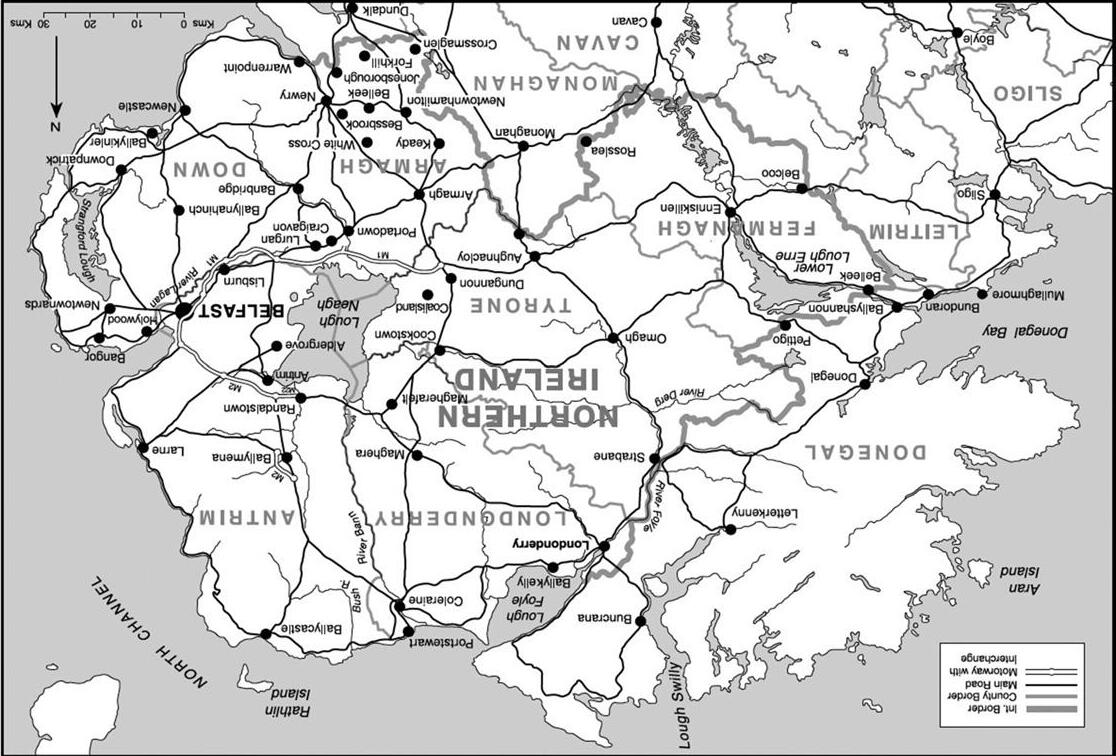
Map1 NorthernIreland. ©PeterWood,from OperationBANNER byNickvandeBijl,Pen&SwordBooks.
forthosemakingstrategy.4 Britishstrategistssawcivilwarassomething loomingonthehorizon,tobekeptatbay,andattimesareasonforinvoking strategicchange.
Soldiersatthesharpendsharedthebeliefintheirindispensable presencewithoutalwaysseeinghowthismightcontributetoperpetuating theconflict.MarineGouldsarrivedinthetownofNewry,astrideCounties ArmaghandDown,sixmonthsaftercompletingcommandotraining:
TosaytheleastIwasabitapprehensiveaboutgoingovertoUlster.Ididn’t knowwhattoexpectonewayortheotherandwhenyougetdowntofactsit istheunknownthatinducesfear therehavebeenbombings,shootings, arms finds,andtwoMarineshavebeenkilled.NowIbelievethatNewryis notanormalBritishtown,butatownwherethemajorityofpeoplewishit tobeso,butarepreventedfromleadinganormalpeacefulexistenceby aminorityofdiehardterrorists.Itisnowmyopinionthatwehavetobe here,thatifwewithdrawalltheBritishforcesfromUlsterthepeopleofthis countrywouldsufferfargreaterthantheyhavedoneinthepast fiveyears. Becauseofthiswehavetostaywhetherwe,oranyminority,likeitornot.5
HistoricalknowledgeabouttheTroubleshasbeenextractedforvarious purposes.AmericanofficersinIraqafterthe2003invasionweariedoftheir BritishcounterpartslecturingthemonNorthernIreland – notleastbecause theselessonscamefromthecampaign’sendgame.6 Historydeservesmore carefulhandling.Controversiessurroundingtheconflictareperpetuatedby acriminaljusticeapproachoccupyingaspacethatmightbetterbedealtwith byamovetowardstruthandreconciliation.Despiteallegationsaboutveteransbeingpersecuted,since2011theDirectorofPublicProsecutions(DPP) forNorthernIrelandhasbroughtcasesagainstsixmilitaryveteransfor conflictlegacyoffences,comparedtotwenty-oneagainstex-paramilitaries.7 InMay2021criminalproceedingsagainsttwoformerparatroopersforshootingdeadJoeMcCannin1972collapsed,owingtoproblemswiththeprosecution’sevidence.8 InFebruary2023DavidHoldenbecamethe firstex-soldier tobeconvictedofaTroubles-relatedkillingsincethe1998GoodFriday Agreement.Ajudgeimposedathree-yearsuspendedsentenceforthemanslaughterofAidanMcAnespie,whowasshotatacheck-pointinCounty Tyronein1988.ThejudgecriticisedHoldenforgiving ‘adishonestexplanationtothepoliceandthentothecourt’ . 9 Theprospectsforsecuring convictionsinotherhistoricalcasesareuncertainevenasthevictims’ quest forjusticeisunimpeachable.Thoughtheconflictislargelyover,themajor participantscontinueto fighta ‘battleforthehistoricalrecord’ . 10 Anxieties overpotentialprosecutionsmeanveteransarereluctanttotalk,government
departmentsdragoutfreedomofinformationrequestsinordinatelyand doorsareslammedshutbyregimentalmuseumswhoseetheirprimary purposeasupholdingreputationsratherthanfacilitatingresearch.11
LookingbackwardsfromtheGoodFridayAgreementagecanobscure earliercontexts.Peaceatanypricewasnotauniversallysharedaimduring theearly1970s.InDecember1971ReginaldMaudling,thehomesecretary, toldreportersthatIrishRepublicanArmy(IRA)activitiescouldbereduced toan ‘acceptablelevel’ 12 Bytheendof1975,1,502peoplehaddiedinthe conflict.13 Thegovernment’stolerationofsufferingonsuchascale,even thoughresponsibilitymustbesharedbetweenthebelligerents,isperplexing.Whenmindlesskilling,likeBloodySundayorotheratrocities,isso prominent,weassumestrategymusthavebeenabsent.14 Writingsonthe Troubleshavesometimesdeformedourunderstandingoftheviolenceby reducingittotwobasictypes:primitiveregression(inatavistic,savage terms),orculturalsolidarity(referringtoculturalcollision,orethnicconflict).Instead,thewarshouldbetreatedasapoliticaldisputeaboutsovereigntyoverterritory,whereeachpartyclaimedtoholdademocraticrightto prevail.15 Thereisanalternativetoatavisticorculturalinterpretationsofthe violence – strategy, ‘thecentralpoliticalart ... theartofcreatingpower’ . 16 UncivilWar asks:howwasBritishmilitarystrategytowardsNorthernIreland madeandwhatwereitsimplications?Militarystrategyis ‘theprocessby whicharmedforceistranslatedintointendedpoliticaleffects’ . 17
TheBritishArmy’soperationsinNorthernIrelandhavereceivedless scholarlyattentionthanonemightexpect.TheIRAhasbeensubjectedto moresustainedanalysis.18 UncivilWar addressestheimbalance,without suggestingthearmyplayedamoredecisiverolethanotheractorsinthe conflict.Militarystrategyisoftenunderstoodinrelationtograndstrategy, thelonger-termorchestrationofallelementsofstatepowertowardsachievingpoliticalobjectives.19 TheBritishgovernment’sendeavourstocoordinatemultipledepartmentsofstateoverthirtyyearsisatopicalready ablydissected.20 Lookingcloselyatthearmyoverashortertimespanbrings newinsightstothefore.Therewasnoshortageofopinionsatthetime,as LieutenantDaviesnotedin1972:
WhereveryougoinBelfastinuniform,peoplewillalwayscomeuptoyou andputyourightonyourfacts.Ifit’saProtestantspeakinghewilltellyou ofthedoingsofthe ‘FenianBastards’ andifit’saCatholicspeakingyoucan hearhimtalkofthe ‘OrangeBastards’.Andifyourluckisreallyout,hewill alsotellyouwhathethinksoftheArmyandofhowthe ‘GreenHowards’ wouldhavedoneit.21
Militarystrategyisaddressedbyexistingstudiesinthreeways:asrepressive, reactiveormissing.Threetotemiceventsmakerepressionthedominant perspective.WhenamasscurfewwasimposedonthedenselyinhabitedFalls RoadareainBelfastinJuly1970,peoplesawordinarystreetsdrenchedin teargas,soldierskickingdowndoorsandhousestrashedinthesearchfor arms.(See Map2.)InAugust1971thearmypulledhundredsofmenfrom theirbedstobeinternedwithouttrial,amidstchaoticstreetviolenceand,it soontranspired,brutalinterrogationforanunfortunatefew.TheBloody SundayshootingsinDerryandthestate’sfailuretoholdanyonetoaccount tarnishedthearmy’sreputation,perhapsabroadmorethaninBritain.(See Map3.)Theseeventsappearinpopularandacademicaccountswith apredictableregularity;theyaredefiningmomentsintheconflict’shistory. CollectivelytheyareseentosymbolisetheBritishArmy’sbidtocrush rebellionwithharshmethodsliftedfromexperiencesintheempire,defininga ‘colonialstrategy’ untilthepoliceassumedcontrol.22 Byimplication theseharshtacticsmeantanessentialcontinuitybetween1969and1975.
Alternatively,authorscastthearmyasavictimofwickedrepublicanism, emphasisingstrategy’sreactivenature.Bythislogicsoldierswereonthe backfootagainstterroristswhopursuedtheirgoalsinaruthless,cunning manner.TheprimesuspectsareofcoursetheProvisionalIrishRepublican Army(PIRA).23 Horrificactscommittedbyrepublicansareremembered, suchastheAbercornrestaurantbombinginMarch1972,when2people diedand130wereinjured.Thesub-fieldofterrorismstudiesreifiesgroups suchastheIRAwhenexplainingpoliticalviolence,withaparticularinterest inhowpeoplebecometerroristsandhowthesegroupsareorganised.24 SomescholarsarguethattheBritishgovernment’srefusaltoabandon reformasthecentralresponsetothecrisisinNorthernIrelandandcrack downontheIRAallowedtheorganisationspacetogrow.25 Othersclaim rivalrieswithintherepublicanmovementpromotedviolenceasgroupsused attacksonthesecurityforcestoattractpopularbacking.26 Inthisgenrethe BritishArmyispitiedforfallingintotrapssetbydeviousterrorists.27
ThethirdcommonplacereadingofmilitarystrategyinNorthern Irelandclaimsthearmysignallylackedone.Sophisticatedpolicyanalyses haveignoredmilitaryrecords.28 Thegovernmentisblamedforfailingto givethearmyanystrategicdirectionintheearlyyears.29 Seniorgenerals haveperpetuatedthisbelief.DavidRichards,whoendedhiscareerasChief oftheDefenceStaff(CDS),recordsinhismemoirsbeingaskedin1993to writethe firstcampaignplanforoperationsinNorthernIreland,suggesting aprioromission.30 Moregenerally,unpickingBritishmilitarystrategyinthe ColdWaryearsiscomplicatedbytheneedtoalignnationalprioritieswith
Map2 Belfast. ©PeterWood,from OperationBANNER byNickvandeBijl,Pen&SwordBooks.
thoseemanatingfromtheUnitedStatesandtheNorthAtlanticTreaty Organisation(NATO).31 Whereastherepressionmotifplacesblamefor sufferingintheearlyyearssquarelyonthemilitary’sshoulders,studies framedaroundreactiontoIRAviolenceorastrategyvacuumendup removingresponsibilityfromthearmedforces.
Theseaccountsneedtobequestioned.By1971mid-rankingofficers weretaught: ‘theArmyisfacedwithasituationunlikethatpreviouslymet elsewhere .TheArmy’spreviousexperience,trainingandtechniquesdo notfullycoverthissituation.’32 Thecoercivemeasuresappliedinthe1970s neverreachedtheintensityseeninthecolonies.Forcedpopulationmovement,executionsandcollectivepunishmentsneverenteredthearmy’ s tacticalrepertoireinNorthernIreland.33 Thecolonialcontinuitynarrative alsoassumesthearmystumbledblindlyfromonesettingintoanother withoutanyreflection.Inreality,officersobservedchangestothestrategic environmentduringtheendofempire,afterwards,andthroughoutthe NorthernIrelandconflict.Therepressiontemplatecannotaccountfor variationduringtheconflict,eitherintimeorplace.Militarytacticsin January1970weremarkedlydifferentfromthoseinSeptember1971;practicesinthecountrysidedivergedfromthoseinthemajorurbancentres. Blamingrepublicanismisequallymisleading.ItistruethatthePIRAleadershiplaunchedanoffensiveagainstBritaininJanuary1970,beforethe Fallscurfew,internmentandBloodySunday.Yetfocusingsolelyonthe IRA’spartinstartingtheTroublesignoreshowrepublicansmadechoices inrelationtotheirowncommunitiesandtheiropponents,notinisolation, astheirstrategychangedovertheyears.34
UncivilWar uncoverstherunningdiscussionsbetweenministers,officialsandofficersratherthanlookingforasingleplanagreedbypoliticians andthenfollowedslavishlybysoldiers.35 AMinistryofDefence(MOD)civil servantcalledtheprocess ‘DefencebyDiscussion’ 36 Thesedebatescouldbe protractedandfractious.37 Suchdisputationisnormalinarmedforces.38 YetintheBritishcaseareputationforanti-intellectualismmeanssuch debatesaresometimessidelined.39 Studiesspecificallyaboutcivil–military relationsinNorthernIrelandremain fixatedonafewset-pieceturningpoints.40 Byexploringstrategyinamoredynamic,continualsensethisbook illuminatesthehistoricalcontingenciesinwhichstrategistsmadechoices, downplayingthesenseofinevitabilitysocommontoaccountsofthe conflict.41
Movingbeyondahandfulofdecisionsbyseniorleadersbringstwo furtherbenefits.Firstly,thesignificanceofseeminglymundaneevents becomesmoreapparent.Some250,000housesweresearchedinmainly
Catholicareasbetween1971and1976,sometimesacceptedbyhouseholderswithlittlemorethanashrugoftheshoulders,atothertimesmetwith vitriolassoldiersrippedup floorboardsorcausedotherdamage.Each searchinisolationmadeonlyasmallmarkonthesocialfabric.Overyears therancouraccumulated.42 Secondly,becausestrategycomprises acontinualdialoguebetweenthepoliticalandmilitarydomains,goalsare adjustedasimplementationonthegroundshowswhatisfeasible.43 Uncivil War accountsforthemilitary’sabilitytopushpoliticsfromthegroundup.44 UnlikemostexistingworksontheBritishArmyinNorthernIreland,the analysisavoidsrefractingeventsthroughacounter-insurgencylens. Counter-insurgencyoftenfallsintoanobsessionwithmilitarytechnique.45 Byfocusingonstrategythisbookkeepsmilitarythoughtandactionwithin thepoliticalparametersofthetime.
UncivilWar assessescontinuityandchangeinmilitarystrategybetween 1966,whenseriousdisorderbecameapossibility,and1975,whenthe governmentdecidedtobeginhandingoverprimaryresponsibilityforsecuritytothepolice.PIRA,intentonkillingservicepersonnel,wasclearlythe mainthreatfortheBritishgovernment.46 However,Britishstrategicequationsabouthowtouseforcealwaysaccountedfortheexpectedimpacton loyalism.Thegovernmentbelievedrepublicanandloyalistviolencecould mixandcombustunpredictably,andsoaimedtopreventaspiraldownwardsintocatastrophiccivilwar.MilitarystrategyproducedalevelofviolenceacceptabletotheUnitedKingdom’smajority,withoutreaching apoliticalsettlement,thusconsigningNorthernIrelandtoprotracted conflict.By1975strategistssettledforanunendingwarforthreereasons. Firstly,therefusaltorepressloyalistviolenceunderminedtheprospectsfor peaceandheightenedCatholicdistrustinthestateasaprotector.Secondly, militarystrategistsknewagreatdealabouttheIRAbuterredinperceiving theorganisationassolelyoffensive.47 Britishstrategyconsistentlyunderestimatedcommunitydefenceasareasonforpeoplejoiningorsupporting theIRA.Thirdly,inseekingprotectionfromtheconflict’sdivisivepolitics, seniorcommandersturnedthearmyinonitself,hardeningsoldierstothe sufferingofordinarypeopleinNorthernIreland.TheBritishArmybecame increasinglyhostiletowardstheIrishingeneralanddismissedcomplaints aboutthesecurityforces’ conductaspropaganda.Consequentlythearmy couldnotconvinceCatholicsorProtestantsthatitwastheretoprotect them.
Wheredidthefearofcivilwarcomefrom?Thearmy’sexperienceinthe Englishcivilwar,1642–51,iswidelyregardedasthebirthplaceforadeep aversiontopolitics.EventsattheCurraghinMarch1914,whenover
ahundredofficersthreatenedtoresigniforderedtosuppressUlsterloyalism,furtherentrenchedthelesson.48 Anxietiesaboutcivilwarweretied togetherwithadistasteforpolitics.Mostprofessionalsoldierspreferto concentratetheireffortsontacticsandavoidthemessypoliticalworld.49
Bythe1970sthedefencecommunitywasabsorbedbyseveraldecadesof thinkingaboutahorrendous ‘imaginarywar’ . 50 TheBritishArmy’sprimary occupation,affectingabout60,000personnel,waspreparingforwarin GermanyafteraSovietinvasion.ThedistinctionbetweenarmourandartilleryunitsdevotedtoGermandefence,andinfantryformationsliabletobe pulledoutforglobalemergencies,engendereddifferent ‘mentalworlds’ in thearmy.51 YetideasfromtheColdWarseepedacrossintotheperceived dangersinNorthernIreland.Bytheearly1950sbothcivilianandmilitary strategistsexpectedanynuclearexchangetorapidlyescalateintoaglobal disaster. ‘Puredeterrence’ waspreferredoverthealternative – agraduated
Map3 Derry/Londonderry. ©PeterWood,from OperationBANNER byNickvandeBijl,Pen&SwordBooks.
reactiontoaSovietoffensive.Theseideascontaineddeeppessimismabout themilitary’sabilitytomaintainrestraintoncewarbegan.52 Consequently, thearmyintheColdWarheldtoabeliefinwar’salmostuncontrollable descentintocatastrophe.Strategy-makersreacheddecisionsshroudedin anxietiesaboutpotentialfuturesuffering.
Thetendencytowardsescalationinwarmakeslimitationdifficult.53 Limitedwarsonlyhappenwhenthoseinvolvedaccepttheneedtohold back.54 As21EngineerRegimentobservedaftertheirtourin1971: ‘Disciplinemustbe firm,evenharsh,andthesoldiersmustunderstand thatthisisgoingtobeso.’55 Apartfromafewmajoratrocities,suchas BloodySundayorPIRA’sexplosionoftwenty-fourbombson21July1972,all belligerentsrefrainedfromusingthemaximumviolenceattheirdisposal mostofthetime.DespitetheirradicallydifferentvisionsforNorthern Ireland’sfuture,thekeyactorssharedadesiretoavoidcatastrophiccivil war.ThomasSchellingdescribeslimitedwarsasbargainingsituations: ‘the abilityofoneparticipanttogainhisendsisdependenttoanimportant degreeonthechoicesordecisionsthattheotherparticipantwillmake’.If limitationrequiresagreement,thenconflictcanbeconceivedofas astruggletonegotiatewherethoselimitsshouldbe.56 Existingstudies arguethattheBritishgovernment’simpetusforrestraintderivedfrom NorthernIreland’sconstitutionalpositionasaprovincewithintheUnited Kingdom.57 UncivilWar suggestslimitationderivedfromexpectationsabout theotherbelligerents’ abilityandwillingnesstoescalate.
Thearmycertainlyfacedgreaterlegalconstraintsthaninthecolonies. However,theconstitutionalpositiondoesnotaccountforthegovernment’ s reluctancetoexpendgreaterresourcesontheconflict.Inthesummerof 1972massivetroopdeploymentsintocontestedareassignificantlyreduced violence.58 Thegovernmentabstainedfromsuchoperationsearlier,orfor longer,duetohigher-prioritynationalinterests.PreparationsforBritain’ s accessiontotheEuropeanCommunitiesinJanuary1973andthesubsequentreferendumin1975consumedavastamountofthegovernment’ s policy-makingcapacity,andPrimeMinisterEdwardHeath’stime.59 MaintainingthetrooplevelspromisedtoNATOplacedseriousrestrictions onhowmanysoldiersmightbesenttoNorthernIreland,andhowoften.In otherwords,thoughlimitationstotherulesofengagementappliedbecause NorthernIrelandwaswithintheUnitedKingdom,resourceconstraints, intellectualandmaterial,pushedtheBritishgovernmenttopursuelimited strategicobjectives.Thegoalofpreventingacatastrophiccivilwarwas achievedby1975largelyattheexpenseofordinaryCatholics,whowere forcedtoendurean ‘open-endedmilitarizationofeverydaylife’ . 60
Loyalistgroups,mostprominentlytheUlsterVolunteerForce(UVF) andtheUlsterDefenceAssociation(UDA),neededtheBritishgovernment’shelptoremainBritish.Theycouldnotriskantagonisingthegovernmenttotheextentthatmilitaryforceswerepermanentlywithdrawn;hence thelownumberofloyalistattacksonBritishArmypersonnel.Onebattalion describedtheir ‘love–haterelationship’ withthelocalUDA.61 LoyalistviolencetowardsCatholicsincreasedbetween1972and1974:topunishthem forattacksbytheIRA,andtowarnofthebloodbathtocomeiftheBritish withdrew.62 Whenalarge-scalestrikebroughtdownthedevolvedExecutive inMay1974,loyalistshadsucceededinmorethanblockingaunited Ireland.Evenpower-sharingwithconstitutionalnationalistswasoffthe tablefortheforeseeablefuture.Militantloyalistsdefinedtheiractionsas defensive,simplyrespondingtoarepublicanthreat.From1972theypursuedindividualmurdersastheirprimarytactic,asthesecurityforceseffectivelypreventedthemassincursionsintoCatholicareasseeninearlier times.63 ThoughtheBritishArmycametobelieveeliminatingrepublican violencewouldautomaticallymakeloyalistaggressiondisappear,theevidencepresentedinthisbookshowsthatatseveraljuncturesadecreasein republicanactivitybroughtaboutanupsurgeinloyalistviolence,representinganintentionto finishofftheIRAforgood.
RepublicanstrategyaimedtocoercetheBritishintoleavingandloyalists intojoiningaunitedIreland.By1975PIRAhadmanagedtopersuadethe BritishgovernmenttoabolishtheStormontparliamentthateffectivelylocked Irishnationalistsandrepublicansoutofpower.Theysucceededinbringing theBritishtothenegotiatingtableandsawtheSunningdaleAgreement, designedtoachievepeacewithouttheirparticipation,falltopieces.These achievementsledthemtobelievea finalpushforultimatevictorywasviable.64 Itwasnot.PIRAstrategyassumedthatinflictingpunishmentontheBritish, througheconomicdamageandinsoldiers’ andpoliceofficers ’ lives,must causetheirenemytobedefeated.Theyunder-estimatedtheUnited Kingdom’swillingnesstoabsorbpunishment.AsSecretaryofState(SoS) forNorthernIrelandMerlynReessaidafewdaysafterPIRAbombedpubs inBirmingham,killing21andinjuring182: ‘Thesefellowshavegottobe beaten.Andifthey’renotbeatenbyustheywillbebeatenbythe Protestants.’65 Insurgentmovementsareonlylikelytowinonhomesoil whentheyachievemajoritypopularsupport(whethervoluntaryorcoerced), andescalatetheirmilitarycampaigntodecisivelydefeattheincumbentstate’ s forcesinbattle.66 NeitheroftheseconditionseverappliedforPIRA.As amovementwithappealtoaminorityinNorthernIrelandtheprospects formassmobilisationwerepoor;after1972itbecameobviousthatcreating
anall-Irelanduprisingwasimpossible.PIRA’scapacityforremarkabletactical andorganisationalinnovationcannotoutweighitsultimatestrategic myopia.67
AddressingtheBritishArmy’splaceintheconflictisuncomfortablefor asocietystillimmersedinnostalgicvisionsofheroismintheSecondWorld War.OperationBanner,asitcametobeknown,wasanunwantedwarand onewithoutsimplemoralitytalesaboutgoodandevilforthenationtounify around.TheNorthernIrelandconflictshouldnotbewrittenoffanylonger assomethingthathappenedoverthere,distantly ‘acrossthewater’.While pronetocaricatureswhenthinkingaboutIrishpeople,militaryanalysts couldalsorecognisehow:
thepeoplehavebeeninthemiddleofacivilwar – completewithshooting, intimidationandmurder.Thishasanenormouseffectontheirlivesand reactions – especiallywhendealingwithsoldiers.Therewouldbesome surprisingchangesinthepeopleofKnightsbridgeorCardiffiftheyhad hadsimilartroubles.68
ThisisawarwithcomplexlegaciesforBritain,comprisingmomentsof serviceandself-sacrificeaswellaserror,misunderstandingandintended brutality. UncivilWar aimstoadvanceourhistoricalunderstandingabout themilitarydimensions.
